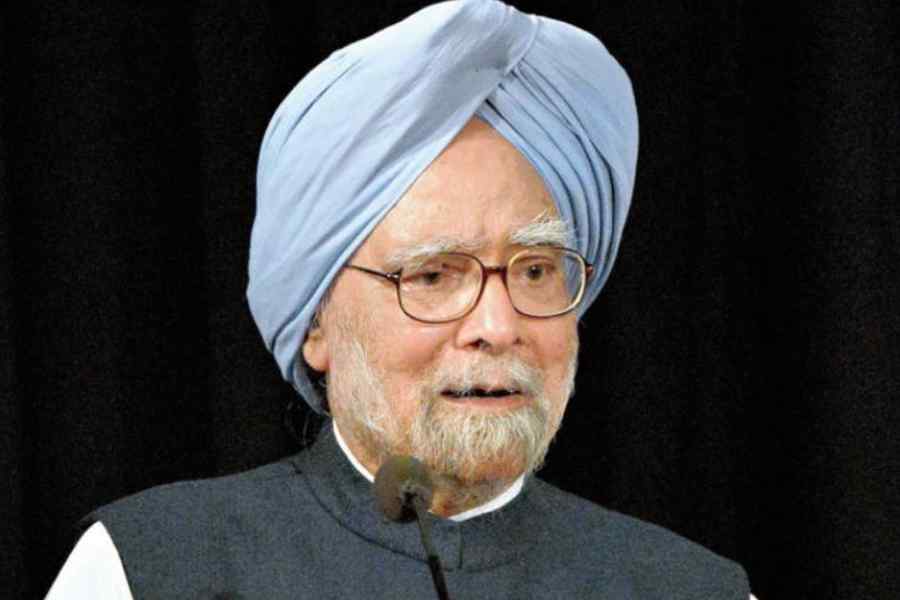Manmohan Singh, who launched India’s economic reforms as finance minister and ushered in multiple rights-based social security schemes as Prime Minister, on Thursday bid farewell to the Rajya Sabha after 33 years in the House.
Members from across parties paid tribute to the 91-year-old economist turned politician for his contributions to the nation and underlined his personal virtues of sincerity and honesty.
Prime Minister Narendra Modi, involved in many a past political battle with Singh that witnessed acerbic comments from both sides, came to the Upper House to laud his predecessor and once-adversary for his democratic credentials and exemplary stint as parliamentarian.
According to the Rajya Sabha website, Singh's sixth term in the Upper House will end on April 3. But with the budget session poised to end this week, members said goodbye to their 58 outgoing peers on Thursday.
Modi said Singh's conduct would guide all MPs. “For six terms, he made valuable contributions to this House as leader of the House and as Opposition leader,” he said.
“Ideological differences remain. Because of his long tenure guiding the House and the nation, he will figure in every discussion of the democracy of our nation.”
Modi said that despite the government having a clear majority in the Rajya Sabha, Singh had recently arrived in the House in a wheelchair to vote, discharging his responsibility as a parliamentarian. “I believe he came to impart strength to democracy,” Modi said.
Former Prime Minister H.D. Devegowda described Singh as “honest to the core” and said he had been defamed for wrongdoing by others.
Leader of the Opposition Mallikarjun Kharge said the country had witnessed high economic growth on Singh’s watch as Prime Minister. He thanked Modi for appreciating Singh’s contributions.
Singh’s tenure as Prime Minister between 2004 and 2014 was marked by the passage of several rights-based laws in areas ranging from food security and poverty alleviation to education and government transparency.
Among these were the Right to Education Act, which made education a fundamental right of every child between 6 and 14 years; the Right to Information Act, which made access to information the right of every citizen; the National Food Security Act, which provided subsidised food grains to two-thirds of the country’s households; the Land Acquisition Act, which stipulated fair compensation for those whose land was acquired for development projects; the Forest Rights Act, which provides records of land rights to forest dwellers; and the Mahatma Gandhi National Rural Employment Guarantee Act, which provides for up to 100 days’ employment to every rural family in a year.
In his last news conference as Prime Minister on January 3, 2014, Singh had described the signing of the nuclear deal with the US as the biggest achievement of his tenure. The agreement enabled India to buy nuclear fuel and obtain fuel technology for its nuclear plants.
In the same news conference, Singh had rejected criticism that he was a “weak PM” and said: “History will be kinder to me than the media.”
Singh, who was Reserve Bank governor in the early 1980s, has been a member of the Rajya Sabha since 1991. He was leader of the Opposition between 1998 and 2004.
As P.V. Narasimha Rao’s finance minister from 1991 to 1996, Singh became the architect of the country’s economic liberalisation, when India opened up key sectors to foreign investment and reduced trade barriers.











